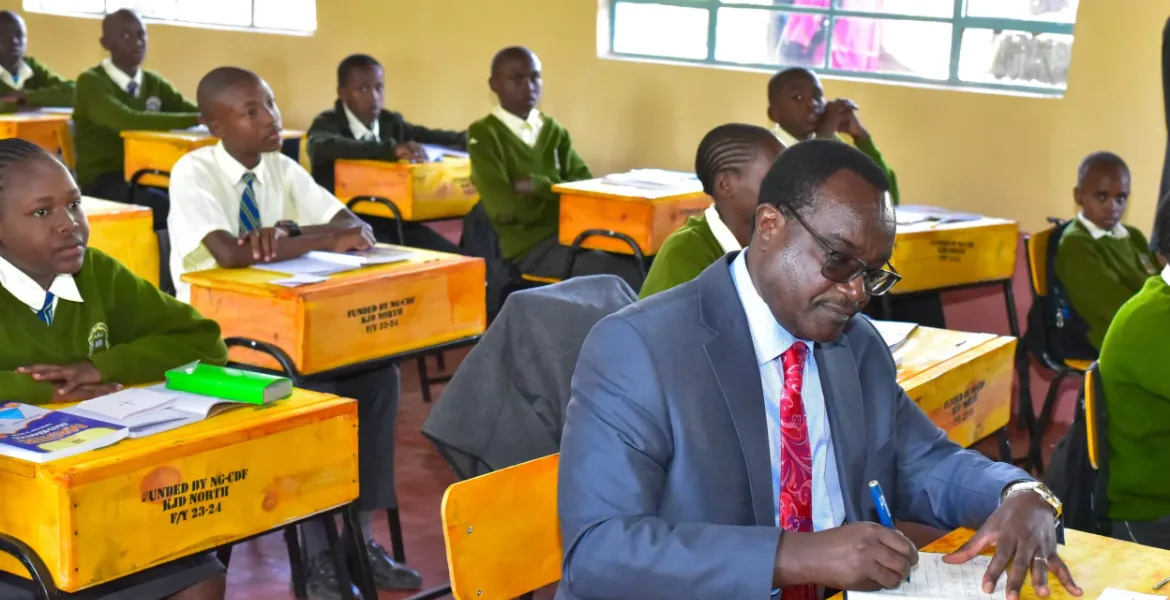Capitation Delays Push Schools into Financial Crisis.
Government delays in releasing funds to public schools have left head teachers, workers, and learners in dire straits, with institutions struggling to provide basic services like food, sanitation, security, teaching materials, and electricity.
The financial crisis has become so severe that some principals are avoiding their schools to escape the shame of struggling children and angry suppliers who camp at their offices daily. In a national secondary school at the Coast, salary arrears dating back to late 2024 have pushed non-teaching staff and contracted teachers into a go-slow.
The school’s chief principal, who had assured workers their arrears would be cleared by January 6 based on promises from the Treasury and the Education Ministry, expressed anguish over the unmet expectations. Forced to avoid the school, the principal admitted they could no longer face the staff with further untruths.
A head teacher in Bungoma County described the deplorable state of schools, pointing to a lack of essential resources like books, gates, and security staff. Teachers in the school are forced to contribute money to buy lunch due to the lack of funds.
Another principal disclosed that her school had been taking food on credit, with debts piling daily. To cut costs, students, including girls, are limited to bathing once a day, and morning and evening preps have been eliminated to reduce electricity bills.
Head teachers have reported adopting extreme measures to manage the situation. One principal noted that feeding over 2,000 boys without adequate resources could incite unrest. In response, they would rather send students home than risk chaos, as water and electricity have already been disconnected.
Despite these challenges, Education Cabinet Secretary Julius Ogamba assured stakeholders that Sh19 billion out of the expected Sh48 billion for the term had been disbursed on January 22, 2025.
Speaking in Mombasa during a school inspection, he stated that an additional Sh15 billion would be released by January 24, with the remaining funds expected within two weeks. Ogamba appealed to head teachers not to send learners home, noting that schools banking with KCB had already received funds for Junior Secondary Schools.
However, Kenya Secondary Schools Heads Association (Kessha) National Chairman Willy Kuria disputed the CS’s claims, stating schools had not received any funds. Kuria highlighted that even the promised amount was insufficient to cover debts and operational costs. He questioned how much would be allocated per student, pointing out that schools expected far more than the disbursed amount.
The financial shortfall affects capitation, with only 50% of the expected Sh48 billion allocated for the academic year. Free primary education, junior school, and secondary school programs were supposed to receive Sh4.1 billion, Sh15.3 billion, and Sh28.9 billion respectively. The remaining capitation will be disbursed across the second and third terms, with 30% and 20% set for each term respectively.
Kenya Primary Schools Head Teachers Association (Kepsha) National Chairman Johnson Nzioka criticized the government’s failure to fulfill funding promises, saying the delay had forced schools to run on credit and significantly lowered teacher morale.
He described daily confrontations with suppliers demanding payments as embarrassing and demoralizing, urging the government to expedite disbursements. Nzioka warned that continued delays would erode trust in the education system.
Kenya Union of Post Primary Education Teachers Deputy Secretary-General Moses Nthurima revealed that schools are still owed Sh7,000 per student from last year, bringing the cumulative debt to over Sh64 billion in the past four years. He criticized the government for prioritizing cost-saving over educational opportunities, despite education receiving 27% of the national budget.
A principal in Kakamega highlighted the immense challenges of running a day school under current conditions, citing mounting debts owed to local suppliers for essentials like food and sugar. Another head teacher described the situation as untenable, with teachers unable to step outside due to embarrassment over unpaid bills.
Read Also: Transforming Waste Into Fuel: How Biogas Is Changing Kenyan Schools
National Assembly Education Committee member Peter Orero echoed these concerns, recalling that under the late President Kibaki’s administration, Sh22,000 per student was allocated for free day secondary education, enabling schools to run smoothly.
Orero called for the restoration of full capitation and advocated for free day primary and secondary education to alleviate funding gaps. He emphasized the need for purposeful and intentional solutions to address the crisis, urging the government to take responsibility for the growing financial strain on schools.
As the education sector grapples with this crisis, stakeholders warn that failure to resolve the funding delays will undermine the quality of learning and demoralize educators, jeopardizing the country’s future.
Capitation Delays Push Schools into Financial Crisis.


Discussion about this post